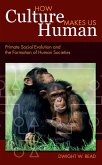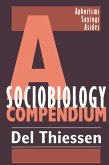This book describes the first field study focusing on the behavior of hamadryas females in the wild. In its attempt to rectify the male-biased view of hamadryas baboon behavior that has persisted over the decades, this book suggests that female behavior contributes more to hamadryas social organization than has previously been assumed and that females may, in fact, be acting in their own best interests after all. For upper-level undergraduate courses on primate behavior and ecology.
Dieser Download kann aus rechtlichen Gründen nur mit Rechnungsadresse in A, B, BG, CY, CZ, D, DK, EW, E, FIN, F, GR, HR, H, IRL, I, LT, L, LR, M, NL, PL, P, R, S, SLO, SK ausgeliefert werden.
Hinweis: Dieser Artikel kann nur an eine deutsche Lieferadresse ausgeliefert werden.









